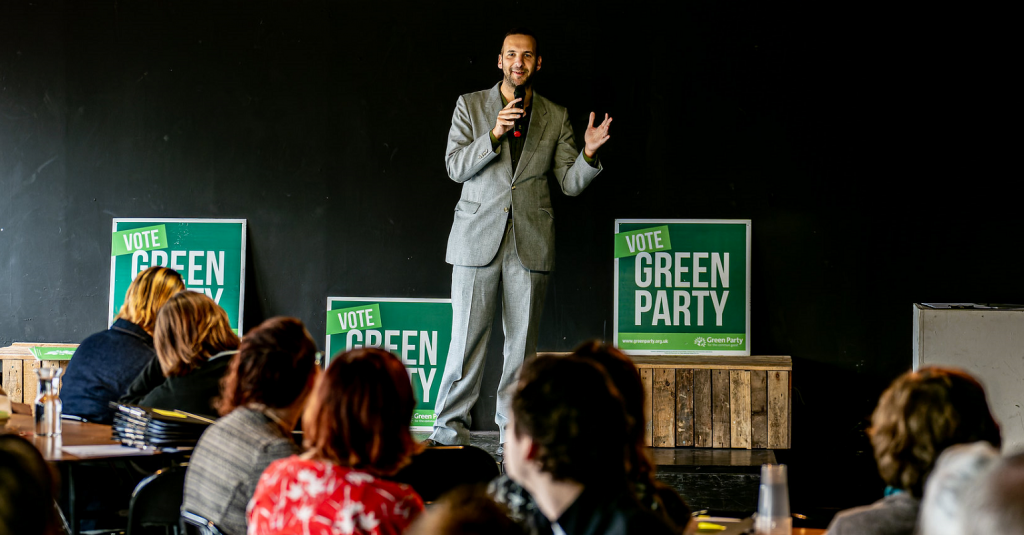It would be easy for Greens to sneer at the Women’s Equality Party, but that would be a mistake
Just who are the Women’s Equality Party and what do they stand for? #PollingDayhttps://t.co/Bzy0IzPfL7 pic.twitter.com/8iZRRdH3Rw
— Stylist Magazine (@StylistMagazine) May 5, 2016
Writing from the Edinburgh count at Ingliston, it’s clear that the Scottish Green Party have broken free from the ‘others’ category and become a serious force in Scottish politics, with results comparable with Labour in a large number of areas in Edinburgh, and rumours emerging that they may have beaten Labour to second place in Glasgow Kelvin. It would be easy in this context to be dismissive of parties still very much within that ‘others’ category, including the Women’s Equality Party.
Certainly there are good reasons to criticise these newcomers.
The Women’s Equality Party has been surprisingly timid in its policy formation, which is perhaps not entirely unexpected from a party founded by such liberal feminists as Sandy Toksvig. It has gone out of its way to present itself as a party neither of the left nor of the right, and this preoccupation with the appearance of political neutrality (or rather, centrality) has led to a policy portfolio which fails to adequately address even those issues which the party says is central to its existence. For example whilst eliminating the gender pay gap appears from their leaflets, their supporters in the commentariat and their website to be one of their highest priorities, their policies in this area amount to mentioning flexible working opportunities on job advertisements, saying employment tribunal fees are too high (but not saying what they would do about it), reducing childcare costs, and doing something about pension contributions which doesn’t sound particularly inspiring or transformational.
I was handed a leaflet outside Edinburgh Waverley train station yesterday which mentioned recognition for unpaid care work as a priority for the party. But their policies don’t address this at all, presumably because doing so would require very transformational policies such as the Greens’ longstanding Citizens’ Basic Income, which is apparently too left wing. A friend who is involved in a feminist group tells me that the party’s representative who came to one of their events refused to describe it as a feminist party. This is failure even on the party’s own terms.
But such a response to the Women’s Equality Party would be foolish, given the Green parties’ own histories. It was not long ago that prominent members of the Scottish Green Party described themselves as ‘not left, not right, but green’, and I still occasionally hear similar statements from members of Green Party of England and Wales. The WEP have made something of a strong start, beating Solidarity and RISE in most of our tallying, and we’ll see how that’s reflected nationwide in the coming days. Most importantly, the WEP have made an invaluable contribution to Scotland’s hustings in this election, bringing their answer to every question back to issues which they consider priorities for women. Greens should welcome this.
It would be easy to be dismissive of the remaining ‘others’. But in the case of those parties broadly on the left such as WEP and RISE, Greens should instead be asking ourselves why our own party was seen as inhospitable to their activists and supporters.




> Greens should instead be asking ourselves why our own party was seen as inhospitable to their activists and supporters.
Because we are a broad-church policy-driven party. Everybody that shares the values I welcome, but that in turn means quite a wide variety of underlying political background. Our policies are quite socialist, feminist, liberal, etc, but that does not make us a socialist or feminist or liberal party in the sense that any of these believes is what brought the most members to the party. And for some people, the same raison d’etre is as important (or even more) than the practical policies.
In the Greens you find political friends. But necessarily much family.
And having quite accidentally mismanaged gender equality big time, I doubt the Greens will be very attractive to WEP members for the foreseeable future.
In your dismissal of those who describe themselves as “not left, not right, but Green” (actually “Forward”) I think you answer your own question as to why our party is seen as inhospitable to those not as left as thou.
“Greens should instead be asking ourselves why our own party was seen as inhospitable to their activists and supporters.” this is a constant gripe of new parties such as animal welfare parties, pirate parties and others that champion a part of the Green agenda. I think there is no simple answer, but often there is a perception that what is important to them is peripheral or even absent to what they perceive as the Green message. There is also a perception that the Greens will not get any influence nor media coverage on those issues, whereas a new party will. There is some truth in this given the media desire to reinforce the stereotypes they create. Lastly when they approach the Greens they often come across a desire to make them Green or change their focus or presentation instead of building solidarity or encouraging them. I have seen this myself, with a strong interest in rural affairs and also science, and reaching those of my generation I did find useful and connected things to do in the Greens but I did not find those things and found actually no real interest in supporting me in them. If I had met several other people that also wanted to take things in that direction I might have done that. The Countryside Alliance could have been a good home for me apart from its over focus on fox hunting. The Science Party might have worked too and reaching people of my age could easily have been a focus rather than the Young Greens.